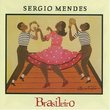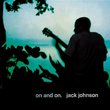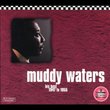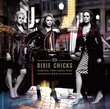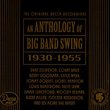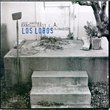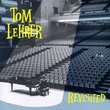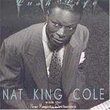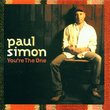| All Artists: Muddy Waters Title: His Best 1956 to 1964 (Chess 50th Anniversary Coll) Members Wishing: 1 Total Copies: 0 Label: Chess Original Release Date: 5/20/1997 Release Date: 5/20/1997 Album Type: Original recording remastered Genres: Blues, Pop Styles: Chicago Blues, Delta Blues, Traditional Blues, Electric Blues, Slide Guitar Number of Discs: 1 SwapaCD Credits: 1 UPC: 076732938027 |
Search - Muddy Waters :: His Best 1956 to 1964 (Chess 50th Anniversary Coll)
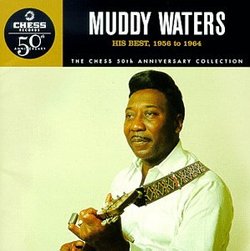 | Muddy Waters His Best 1956 to 1964 (Chess 50th Anniversary Coll) Genres: Blues, Pop
Few blues artists covered as much territory as did Muddy Waters, and it's more than evident if you put this collection and The Complete Plantation Recordings side by side. Even more than the prior His Best collection, thes... more » |
Larger Image |
CD DetailsSynopsis
Amazon.com essential recording Few blues artists covered as much territory as did Muddy Waters, and it's more than evident if you put this collection and The Complete Plantation Recordings side by side. Even more than the prior His Best collection, these recordings illustrate Waters's talent not only as a composer and performer (as usual, many of the songs were written by Willie Dixon), but also as a bandleader. The backing musicians--including several who were by now name artists in their own right, such as James Cotton, Buddy Guy, Earl Hooker, Little Walter, and A.C. Reed--are tight as a drum and smooth as a greased axle. This essential collection contains several classics, including but not limited to "Got My Mojo Working" (Waters's studio take on what has to be the most-covered blues song in existence), "She's Nineteen Years Old," "Good Morning, Little School Girl," "The Same Thing," "You Can't Lose What You Ain't Never Had," "You Shook Me," and "You Need Love" (which will sound oddly familiar to Led Zeppelin fans). It rocks, it rolls, it shakes, it's quintessential Chicago blues. --Genevieve Williams Similarly Requested CDs
|
CD ReviewsThe REAL roots of rock'n'roll 101 12/28/1998 (5 out of 5 stars) "If you've heard "His Best 1947-1956" but thought it lacked a rythm section, well then, you've come to the right place. Starting with "All Aboard" McKinley Morganfield & Co. take you on a wild, wailing train ride through the South Side of Chicago. The original "Got My Mojo Working" will kick your teeth in upon first listen. This disk is a mainstay in my CD player and is an absolute must-have for anyone who likes rock or blues." Not as good and gritty as 1947-55, but still excellent P. Nicholas Keppler | Pittsburgh, Pennsylvania United States | 12/30/2002 (4 out of 5 stars) "By the late fifties, Muddy Waters was as rich and famous as an African-American performing a distinctly African-American form of music could be in the late fifties. The singer was now far removed from the rowdy environments, grueling day labor and lack of genuine opportunity that inspired most blues songs. Thus, this compilation, collecting Waters' best cuts from the late fifties and early sixties, is significantly less gritty than its companion piece, His Best 1947 to 1955. A loss of rawness and gutsy-ness, however, should not be confused with a loss of ability, passion and relevance (or at least not a complete loss of ability, passion and relevance). Waters is still the powerful vocalist, clever wordsmith and dynamite guitar player he was when he released "She Moves Me" and "Mannish Boy." Although it is not the unyielding succession of great material that is 1947 to 1955, 1956 to 1964 is home to more than a few undeniable blues classics, "You Can't Lose What You Ain't Never Had," "Forty Days and Forty Nights," "Rock Me," and "Got My Mojo Workin'" among them.Two musical changes signify Waters' change in status. First of all, Waters relied less on touch-talking like that found in pervious hits such as "Rollin' Stone" and "Hoochie Coochie Man" and more on love and relationship-related lyrics. Such songs range from breezy and gentle ("Just to Be With You," "Rock Me") to fast and celebratory ("Close to You," "You Need Love") to cool and upbeat ("She's Into Something," "Diamonds at Your Feet") to painfully mournful ("You Can't Lose What You Ain't Never Had," "Forty Days and Forty Nights) but are always filled with passion and gusto and continually give the impression that Waters always gave 100%. Second of all, as the words are less intense, the music is given a greater chance to breathe. These tracks feature greater emphasis on instrumentation, which is absolutely no drawback, when instrumentation is supplied by the likes of James Cotton, Jimmy Rogers, Earl Hooker, Little Walter and Buddy Guy. The tracks on which this change is most pleasantly apparent include "All Aboard," featuring an unforgettable dual between harmonica players, Cotton and Little Walter; "Good Mourning Little School Girl" in which the backing band joins together in euphoric companionship and the astounding "Got My Mojo Workin'," in which every performer seems to be racing against another. For moments such as these, His Best 1956 to 1964, despite being a downgrade in roughness and consistentcy from His Best 1947 to 1955, is another important addition to any blues collection." Muddy was a full grown bluesman Patrick Earley | Edmond, Oklahoma USA | 01/24/2001 (5 out of 5 stars) "When you want a best of from your favorite blues artist, there's no better place to go than Chess Records. And they don't dissappoint with this compilation of Muddy's best from the second half of his carrer. Muddy was often imitated but never duplicated. I first saw Muddy in the great documentary "The Last Waltz", when he joined The Band and Paul Butterfield on stage to do "Mannish Boy". When he sings the words "I'm a full grown Man and when I make love to a woman she can't resist", with that famous head shake of his, you just can't help but believe this man means what he says. Muddy Waters was, without a doubt, one of the greatest, most influential musicians of the 20th century. This is essential listening for any true blues lover. And if you don't like this album, you might get punished in the afterlife by having to listen to Yanni and Enya for eternity."
|

 Track Listings (20) - Disc #1
Track Listings (20) - Disc #1